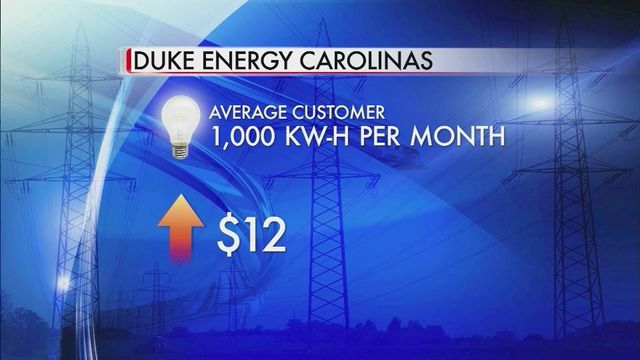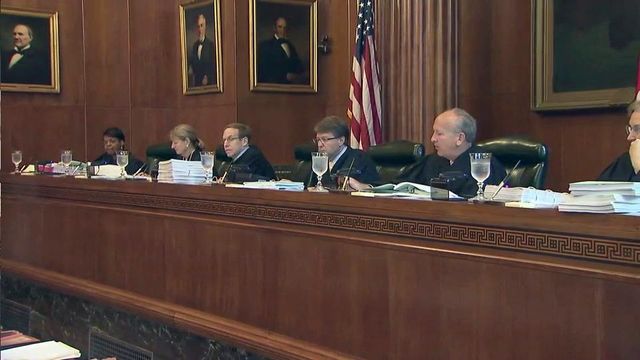NC high court weighs consumer place in power rates
North Carolina's highest court is taking a new look at whether state utilities regulators are doing enough to balance consumer protection against the need for the country's largest electric company for higher rates.
Posted — UpdatedThe state Supreme Court heard arguments Monday in two lawsuits in which Attorney General Roy Cooper argues regulators did not sufficiently explore the impact on consumers when allowing two rate increases for Duke Energy Carolinas. The Duke Energy subsidiary serves customers in Durham and western North Carolina.
The cases involve a 7.2 percent rate increase originally approved in 2012 and another of about 5 percent approved last year. Consumers are already paying the higher rates.
A Duke lawyer says consumers were considered and courts should stay out of second-guessing the best judgment of the appointed regulatory commission.
"Blackouts and brownouts are not an option," Chris Browning, an attorney for Duke, said to argue that the Utilities Commission properly used peak-demand days for calculating the company's needs. "You have to design the system for when demand is the highest."
John Runkle, an attorney for the watchdog group NC WARN, countered that residential customers are paying $1.9 billion more for the rate increases than industrial customers, a difference that he called "arbitrary and capricious."
"There's just no basis of using that one (peak) hour to allocate all the costs of the system," Runkle said. "This is a hard time, a hard economic time, and these rate increases impact the most vulnerable. They hurt the low income, the elderly and those on fixed incomes. Those are the residential customers that we’re talking about."
John Maddrey, North Carolina's solicitor general, said the Utilities Commission never took into account the impact the rate increases would have on residential customers, despite a Supreme Court ruling last year for the panel to do so.
"Did you hear any testimony, are there any findings of fact as to what a 4.5 percent or a 5.1 percent rate increase would have on the average consumer?" Maddrey asked the justices, calling it "a glaring omission." "I don’t see any testimony. I don’t see any findings of fact that would address that. That's the requirement this court has imposed on the commission."
North Carolina Public Staff, the agency that represents consumers in utility rate cases, negotiated the increases with Duke, and attorney Bill Grantmyre said Monday that the increases are needed to prevent customers from seeing even higher power bills in the future.
If rates are set too low, he said, Duke would have a harder time issuing bonds to raise money, which could lead to higher interest rates and debt payments and could jeopardize its operations.
Decisions in the two cases from the court aren't expected for a few months.
• Credits
Copyright 2024 by WRAL.com and the Associated Press. All rights reserved. This material may not be published, broadcast, rewritten or redistributed.






